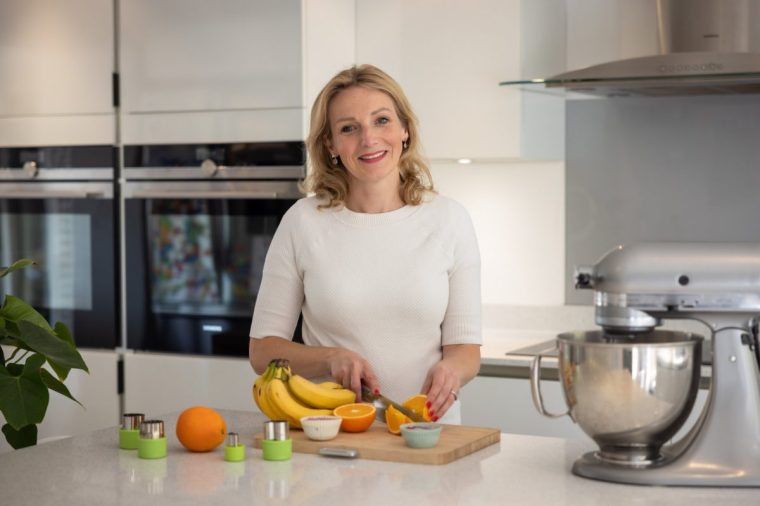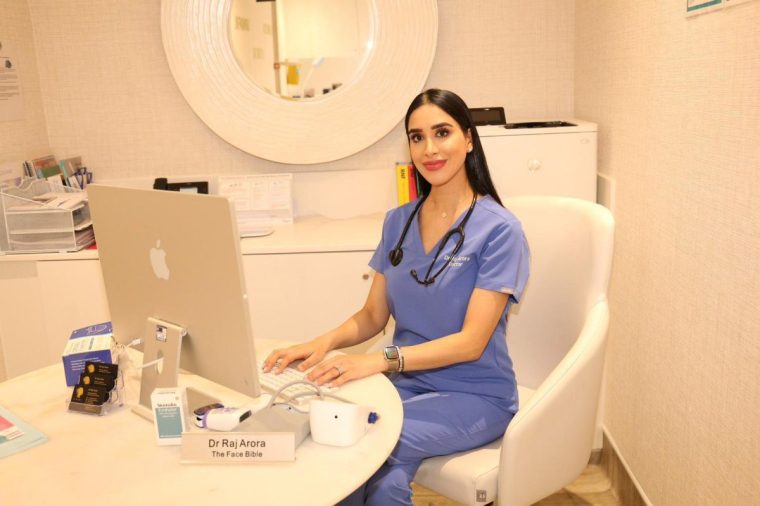Probiotic supplements can support a healthy gut, in turn boosting digestive, immunity, heart and brain health. Doctors and dieticians reveal which ones are worth your money and time
Probiotics have recently been touted as a simple way to boost gut health – and found to support not just digestive health but immune, heart and brain health.
These supplements, made up of live bacteria and yeast, are promoted as having various health benefits, including aiding digestion, reducing the recurrence of infections like bacterial vaginosis, boosting immunity, and reducing negative mood over time. Recent research has even suggested that improving your gut health could reduce your risk of blood cancer.
Perhaps unsurprisingly then, the market has been flooded with probiotics in all shapes and sizes, many promising significant health benefits. But despite this, research by Smart Strains found that 77 per cent of us report experiencing no significant health improvements while taking them. There are even health professionals who dismiss supplementary probiotics entirely as ineffective.
So how do you sort the wheat from the chaff of which probiotics, if any, are worth your time and money? You ask doctors and dietitians what probiotics they take themselves, naturally.
We did just that, and between all their recommendations there were two that stood out.
“This is one of the few probiotics I often recommend to patients”
Dr Leke Asong, a GP and Gut Health Specialist at the Gut Health Medic
 Dr Leke Asong recommends taking probiotics combined with eating a wholefood diet
Dr Leke Asong recommends taking probiotics combined with eating a wholefood diet
“While there are probably thousands of probiotics on the market, one that stands out from the rest is Dr Ohhira’s probiotic. In fact, this is one of the few probiotics I often recommend to patients.
Dr. Ohhira’s OM-X Probiotic uses a proprietary blend of 12 different strains of lactic acid producing bacteria (LAB) isolated from Tempeh, a fermented soy product from Indonesia.
A fundamental distinguishing factor between Dr Ohhira’s OM-X and other probiotics on the market is how the bacteria are grown and fermented. OM-X is grown in fermentation pods instead of a laboratory medium like other probiotics. OM-X uses an eclectic blend of 92 different crops, including fruits, vegetables, herbs, mushrooms and seaweeds.
The end result is a fermented mix of prebiotics, probiotics, and postbiotics – all three of which are essential to help balance your gut microbiome.
This helps boost your immunity and reduce gut inflammation, therefore reducing chronic diseases, which can include: sugar cravings, obesity, insulin resistance, prediabetes, diabetes, brain fog, anxiety, depression, sleep disturbances, hypertension, heart attacks and more.
As well as taking this probiotic, I recommend consuming predominantly wholefoods and avoiding processed foods. This includes eating meat and fish up to four times a week, consuming nuts and seeds as snacks, and increasing consumption of fermented foods like sauerkraut, kefir, kimchi, tempeh, miso and more.
Stress management, exercise and sleep are also extremely important.”
“It’s not just about adding bacteria — it’s about creating the right gut ecosystem”
Dr Ash Kapoor, GP, longevity doctor and nutritionist at Levitas
 Dr Ash Kapoor recommends pairing a probiotic with other supplements (Photo: Phil Jones)
Dr Ash Kapoor recommends pairing a probiotic with other supplements (Photo: Phil Jones)
“I take Dr Ohhira, a unique fermented probiotic that goes far beyond standard live bacteria capsules. It’s one of the only formulations that contains all three phases of gut support: prebiotics, probiotics, and postbiotics. Unlike many shelf probiotics, Ohhira is fermented for over three years in a temperature-controlled environment and doesn’t need refrigeration — making it incredibly stable and effective.
I chose Dr Ohhira because it’s not just about adding bacteria — it’s about creating the right gut ecosystem. And the postbiotics is where Dr Ohhira truly shines. The long fermentation process naturally produces postbiotics like short-chain fatty acids, peptides, and enzymes — compounds that help regulate the immune system, repair gut lining, and reduce inflammation.
It’s a holistic gut modulator, not just a probiotic supplement.
But gut health is not isolated—it’s connected to everything: skin, brain, hormones, and immunity.
That’s why I pair Dr Ohhira with:
- Qenda’s Ultimate Fibre: A powerful botanical blend that helps clear out toxins, parasites, and old biofilm, while soothing and rebuilding the gut lining with herbs like slippery elm, marshmallow root, and aloe vera. It’s a pre-repair protocol I use to prepare the gut for absorption and microbial balance.
- Totally Derma’s Neutraceutical supplement: This collagen supplement supports gut lining regeneration and systemic repair. Its hydrolyzed collagen peptides, hyaluronic acid, and co-factors like vitamin C and biotin promote skin and joint health while feeding intestinal cells that line the gut (enterocytes).
Together, they offer a 360° regenerative protocol for gut resilience and systemic health — rather than just symptom relief.”
“This is designed to survive the antibiotics and reach the gut”
Emma Shafqat, Paediatric Dietitian
 Dietician Emma Shafqat likes taking Symprove, a liquid probiotic (Photo: Omar Shafqat)
Dietician Emma Shafqat likes taking Symprove, a liquid probiotic (Photo: Omar Shafqat)
“I have been taking Optibac. For those on antibiotics recently – I was on a dose of penicillin for tonsillitis – they’re designed to survive the antibiotics and reach the gut. Then I have been taking Symprove afterward and plan to continue for 12 weeks to help restore some of my good bacteria after the antibiotics.
I primarily support my gut health through my diet and recommend that. I have kefir every morning, eat plenty of prebiotic-rich fruits and vegetables to support my gut bacteria, enjoy fermented foods like pickled cucumber in salads, and include oats and natural yogurt with lots of seeds in my diet.”
“I noticed a considerable difference in my IBS symptoms after four months”
Dr Raj Arora, NHS GP and founder and lead doctor of The Face Bible
 Dr Raj Arora pairs Symprove, a liquid probiotic, with a diet rich in fibre (Photo: The Face Bible)
Dr Raj Arora pairs Symprove, a liquid probiotic, with a diet rich in fibre (Photo: The Face Bible)
“I take Symprove, a liquid probiotic, which comes with a body of independent research and evidence to support its impact on gut health. I noticed a considerable difference in my IBS symptoms after four months of using it. I had less bloating, constipation and stomach cramps after eating certain meals. The probiotic is vegan and gluten free. It is also made from natural ingredients. The bacteria are live and have been proven through research to survive and multiply in the gut.
On top of that, I eat a diet rich in fibre and I exercise regularly. I try to keep my stress levels low. I try to limit my consumption of ultra processed foods and instead focus on probiotic rich foods like kefir, yoghurt and sauerkraut!”
